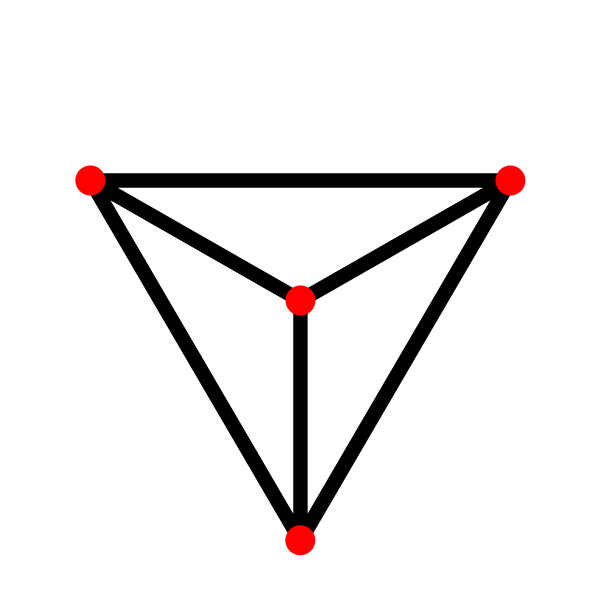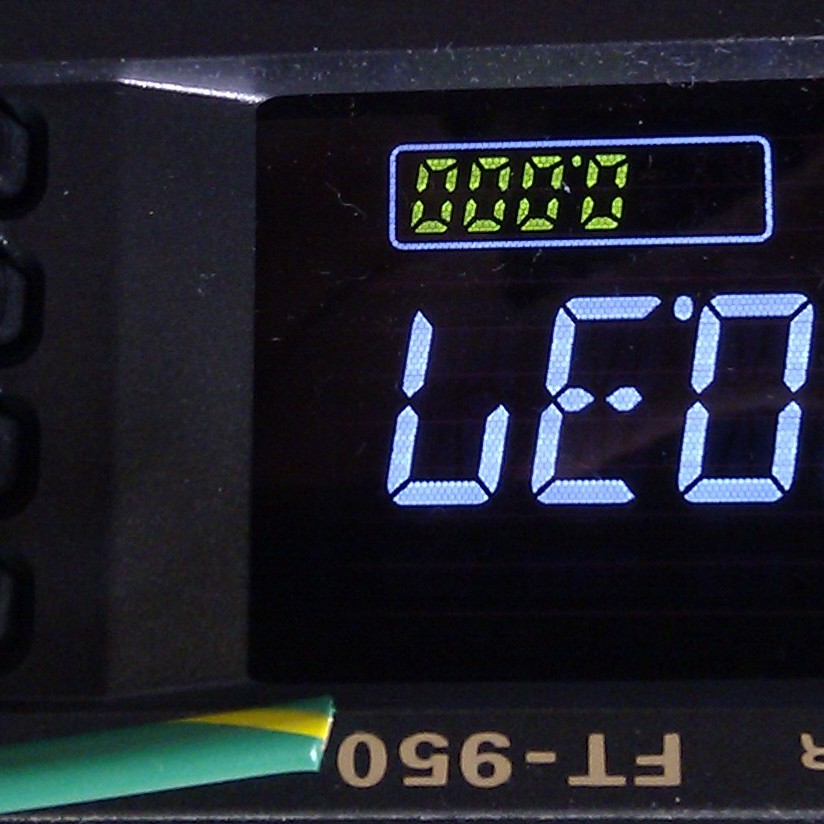Day 1: Historian Hysteria
Megathread guidelines
- Keep top level comments as only solutions, if you want to say something other than a solution put it in a new post. (replies to comments can be whatever)
- You can send code in code blocks by using three backticks, the code, and then three backticks or use something such as https://blocks.programming.dev/ if you prefer sending it through a URL
FAQ
- What is this?: Here is a post with a large amount of details: https://programming.dev/post/22323136
- Where do I participate?: https://adventofcode.com/
- Is there a leaderboard for the community?: We have a programming.dev leaderboard with the info on how to join in this post: https://programming.dev/post/6631465
Zig
const std = @import("std"); const List = std.ArrayList; const Map = std.AutoHashMap; const splitSeq = std.mem.splitSequence; const splitScalar = std.mem.splitScalar; const parseInt = std.fmt.parseInt; const print = std.debug.print; const sort = std.sort.block; var gpa = std.heap.GeneralPurposeAllocator(.{}){}; const alloc = gpa.allocator(); const Answer = struct { distance: u32, similarity: u32, }; fn lessThan(_: void, lhs: []const u8, rhs: []const u8) bool { return std.mem.lessThan(u8, lhs, rhs); } pub fn solve(input: []const u8) !Answer { var rows = splitScalar(u8, input, '\n'); var left_list = List([]const u8).init(alloc); defer left_list.deinit(); var right_list = List([]const u8).init(alloc); defer right_list.deinit(); // PART 1 // split the rows into two lists while (rows.next()) |row| { var sides = splitSeq(u8, row, " "); try left_list.append(sides.next() orelse break); try right_list.append(sides.next() orelse break); } _ = left_list.pop(); // last null // sort both lists sort([]const u8, left_list.items, {}, lessThan); sort([]const u8, right_list.items, {}, lessThan); var distance: u32 = 0; for (left_list.items, right_list.items) |left, right| { distance += @abs(try parseInt(i32, left, 10) - try parseInt(i32, right, 10)); } // PART 2 var right_scores = Map(i32, u32).init(alloc); defer right_scores.deinit(); // count number of item appearances in the right list for (right_list.items) |item| { const value = try parseInt(i32, item, 10); const result = try right_scores.getOrPut(value); if (!result.found_existing) { result.value_ptr.* = 1; } else { result.value_ptr.* += 1; } } // sum up similarity between items in left list and right list scores var similarity: u32 = 0; for (left_list.items) |item| { const value = try parseInt(i32, item, 10); const result = right_scores.get(value) orelse 0; similarity += @as(u32, @intCast(value)) * result; } return Answer{ .distance = distance, .similarity = similarity }; } pub fn main() !void { const answer = try solve(@embedFile("input.txt")); print("Part 1: {d}\n", .{answer.distance}); print("Part 2: {d}\n", .{answer.similarity}); } test "test input" { const answer = try solve(@embedFile("test.txt")); try std.testing.expectEqual(answer.distance, 11); try std.testing.expectEqual(answer.similarity, 31); }Elixir
Total noob, but it’s fun to learn.
{left, right} = File.read!("./input.txt") |> String.split("\n", trim: true) |> Enum.map(fn line -> String.split(line) |> Enum.map(&String.to_integer/1) |> List.to_tuple() end) |> Enum.unzip() |> then(fn {left, right} -> {Enum.sort(left), Enum.sort(right)} end) diffs = Enum.zip(left, right) |> Enum.map(fn {l, r} -> abs(l - r) end) |> Enum.sum() freqs = Enum.filter(right, fn r -> r in left end) |> Enum.frequencies() freqsum = Enum.map(left, fn n -> freq = Map.get(freqs, n, 0) n * freq end) |> Enum.sum() IO.puts("part 1: #{diffs}") IO.puts("part 2: #{freqsum}")Factor
: get-input ( -- left-list right-list ) "vocab:aoc-2024/01/input.txt" utf8 file-lines [ split-words harvest ] map unzip [ [ string>number ] map ] bi@ ; : part1 ( -- n ) get-input [ sort ] bi@ [ - abs ] 2map-sum ; : part2 ( -- n ) get-input histogram '[ dup _ at 0 or * ] map-sum ;Go
package main import ( "bufio" "fmt" "os" "sort" "strconv" "strings" ) func main() { input, _ := os.Open("input.txt") defer input.Close() left, right := []int{}, []int{} scanner := bufio.NewScanner(input) for scanner.Scan() { line := scanner.Text() splitline := strings.Split(line, " ") l, _ := strconv.Atoi(splitline[0]) r, _ := strconv.Atoi(splitline[1]) left, right = append(left, l), append(right, r) } fmt.Printf("part 1 - total diff: %d\n", part1(left, right)) fmt.Printf("part 2 - new total: %d\n", part2(left, right)) } func part1(left, right []int) int { diff := 0 sort.Ints(left) sort.Ints(right) for i, l := range left { if l > right[i] { diff += (l - right[i]) } else { diff += (right[i] - l) } } return diff } func part2(left, right []int) int { newTotal := 0 for _, l := range left { matches := 0 for _, r := range right { if l == r { matches++ } } newTotal += l * matches } return newTotal }Kotlin
No 💜 for Kotlin here?
import kotlin.math.abs fun part1(input: String): Int { val diffs: MutableList<Int> = mutableListOf() val pair = parse(input) pair.first.sort() pair.second.sort() pair.first.forEachIndexed { idx, num -> diffs.add(abs(num - pair.second[idx])) } return diffs.sum() } fun part2(input: String): Int { val pair = parse(input) val frequencies = pair.second.groupingBy { it }.eachCount() var score = 0 pair.first.forEach { num -> score += num * frequencies.getOrDefault(num, 0) } return score } private fun parse(input: String): Pair<MutableList<Int>, MutableList<Int>> { val left: MutableList<Int> = mutableListOf() val right: MutableList<Int> = mutableListOf() input.lines().forEach { line -> if (line.isNotBlank()) { val parts = line.split("\\s+".toRegex()) left.add(parts[0].toInt()) right.add(parts[1].toInt()) } } return left to right }I have another Kotlin (albeit similar) solution:
import kotlin.math.abs fun main() { fun getLists(input: List<String>): Pair<List<Int>, List<Int>> { val unsortedPairs = input.map { it.split(" ").map { it.toInt() } } val listA = unsortedPairs.map { it.first() } val listB = unsortedPairs.map { it.last() } return Pair(listA, listB) } fun part1(input: List<String>): Int { val (listA, listB) = getLists(input) return listA.sorted().zip(listB.sorted()).sumOf { abs(it.first - it.second) } } fun part2(input: List<String>): Int { val (listA, listB) = getLists(input) return listA.sumOf { number -> number * listB.count { it == number } } } // Or read a large test input from the `src/Day01_test.txt` file: val testInput = readInput("Day01_test") check(part1(testInput) == 11) check(part2(testInput) == 31) // Read the input from the `src/Day01.txt` file. val input = readInput("Day01") part1(input).println() part2(input).println() }It’s a bit more compact. (If you take out the part that actually calls the functions on the (test-)input.)
Thanks! I like the
Pairdestruction andzip().sumOf()approach. I’m relatively new to Kotlin, so this is a good learning experience. 😅
C#
using System; using System.Linq; public record Point(int X, int Y); static class Program { static async Task Main(string[] args) { var data = (await ReadInputFromFile("data.txt")).ToArray(); var part1Answer = CalculateTotalDifference(data); Console.WriteLine($"Part 1 = {part1Answer}"); var part2Answer = CountFrequencies(data); Console.WriteLine($"Part 2 = {part2Answer}"); } public static int CountFrequencies(ICollection<Point> points) { var freq = points .GroupBy(p => p.Y) .ToDictionary(g => g.Key, g => g.Count()); return points .Sum(p => freq.GetValueOrDefault(p.X, 0) * p.X); } public static int CalculateTotalDifference(ICollection<Point> points) => points.OrderBy(p => p.X) .Zip( points.OrderBy(p => p.Y), (px, py) => Math.Abs(px.X - py.Y)) .Sum(); public static readonly char[] Delimiter = new char[] { ' ' }; public static async Task<IEnumerable<Point>> ReadInputFromFile(string path) => (await File.ReadAllLinesAsync(path)) .Select(l => { var parts = l.Split( Delimiter, StringSplitOptions.TrimEntries | StringSplitOptions.RemoveEmptyEntries); return new Point(int.Parse(parts[0]), int.Parse(parts[1])); }); }JavaScript
After writing a procedural to-the-point version in C, tried a JavaScript solution too because it’s just perfect for list comprehension. The part 2 search is inefficient but the data size is small.
Code
const fs = require("fs"); const U = require("./util"); const pairs = fs .readFileSync(process.argv[2] || process.stdin.fd, "utf8") .split("\n") .filter(x => x != "") .map(x => x.split(/ +/).map(Number)); const ls = pairs.map(x => x[0]); ls.sort(); const rs = pairs.map(x => x[1]); rs.sort(); const p1 = U.sum(ls.map((l, i) => Math.abs(l - rs[i]))); const p2 = U.sum(ls.map(l => l * U.count(rs, l))); console.log("01:", p1, p2);https://github.com/sjmulder/aoc/blob/master/2024/js/day01.js
Smalltalk
day1p12: input | list1 list2 nums dist sim | list1 := OrderedCollection new. list2 := OrderedCollection new. input linesDo: [ :l | nums := l substrings collect: [ :n | n asInteger ]. list1 add: (nums at: 1). list2 add: (nums at: 2). ]. list1 sort. list2 sort. dist := 0. list1 with: list2 do: [ :a :b | dist := dist + (a - b) abs ]. sim := list1 sumNumbers: [ :x | x * (list2 occurrencesOf: x) ]. ^ Array with: dist with: sim.Haskell
import Control.Arrow import Control.Monad import Data.List import Data.Map part1 [a, b] = sum $ abs <$> zipWith (-) (sort a) (sort b) part2 [a, b] = sum $ ap (zipWith (*)) (fmap (flip (findWithDefault 0) (freq b))) a where freq = fromListWith (+) . fmap (,1) main = getContents >>= (print . (part1 &&& part2)) . transpose . fmap (fmap read . words) . linesTypeScript
This is for part #2 only.
import { readFileSync } from 'fs' const f = readFileSync('./input.txt', 'utf-8') const lines = f.split("\n") let rights = {} for (const i in lines) { if (lines[i] == '') { continue } const [, right] = lines[i].split(/\s+/) if (rights[right] === undefined) { rights[right] = 0 } rights[right]++ } let ans = 0 for (const i in lines) { const [left] = lines[i].split(/\s+/) const similarity = rights[left] if (similarity) { ans += (Number(left) * rights[left]) } } console.dir(ans)Is it possible to get this more efficient? I would love a way that only required iterating over the list once, but I don’t really have the focus to puzzle it out any less than
O(2n)(probably more than that, even, if you count reading in the data…).Uiua
For entertainment purposes only, I’ll be trying a solution in Uiua each day until it all gets too much for me…
$ 3 4 $ 4 3 $ 2 5 $ 1 3 $ 3 9 $ 3 3 ⊜∘⊸≠@\n # Partition at \n. ⊜(⍆∵⋕)⊸≠@\s # Partition at space, parse ints, sort. &p/+/(⌵-). # Part1 : Get abs differences, sum, print. &p/+×⟜(/+⍉≡⌕)°⊂ # Part 2 : Count instances, mul out, sum, print.Haskell
Plenty of scope for making part 2 faster, but I think simple is best here. Forgot to sort the lists in the first part, which pushed me waaay off the leaderboard.
import Data.List main = do [as, bs] <- transpose . map (map read . words) . lines <$> readFile "input01" print . sum $ map abs $ zipWith (-) (sort as) (sort bs) print . sum $ map (\a -> a * length (filter (== a) bs)) asViml
I think viml is a very fun language, i like weird languages lol, so this year im doing it in viml while trying to use as many of the original ed/ex commands as i can (:d, :p, :a, :g, …)
Part 1
!cp ./puzzle1 ./puzzle1.editing e ./puzzle1.editing 1,$sort let row1 = [] g/^\d/let row1 = add(row1, str2nr(expand("<cword>"))) | norm 0dw 1d 1,$sort g/^\d/execute 'norm cc' .. string(abs(expand("<cword>") - row1[line('.') - 1])) $a|---ANSWER--- 0 . 1,$-1g/^\d/call setline("$", str2nr(getline("$")) + str2nr(expand("<cword>")))Part 2
read ./puzzle1 let cnt = 0 g/^\d/let cnt += expand("<cword>") * \ searchcount(#{pattern: '\s\+' .. expand("<cword>")}).total echo cnt .. "\n" w! ./puzzle1.editingCrystal
f = ARGV[0]? ? File.read_lines("input.txt") : test.lines list1 = Array(Int32).new(f.size) list2 = Array(Int32).new(f.size) f.each do |l| nums = l.split.map(&.to_i) list1.push(nums[0]) list2.push(nums[1]) end list1.sort! list2.sort! puts list1.zip(list2).sum{ |l1, l2| (l1 - l2).abs } puts list1.sum {|x| x * list2.count x}










